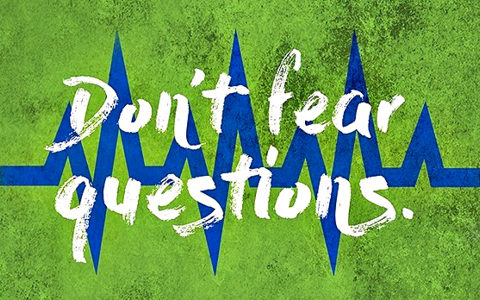MSW
The MSW program encourages an in-depth study of students' individual areas of interest. The curriculum values and builds upon the diverse knowledges and resources students bring to the program. The program includes coursework, a practice-based research paper, and a practicum:
Coursework: core courses provide an overview of interests within the social work field, while elective courses allow students to focus on specific interests.
The Practice-Based Research Paper: encourages theoretical and conceptual depth within a student’s particular area of interest.
Practicum: provides experiential training, where students can apply newly acquired techniques and insight.
Advanced Standing MSW Program
Candidates for the one year (full–time) or two year (part–time) Advanced Standing MSW Program must fulfill the following requirements as follows:
- Social Work 5150 3.0 — Critical Perspectives in Social Work
- Social Work 5250 3.0 — Graduate Research Seminar
- Social Work 5350 6.0 — Practicum (Pass/Fail)
- Social Work 5450 3.0 — Practice-based Research Paper Seminar (Pass/Fail)
- Social Work 5550 3.0 — Indigenous Worldviews and Implications to Social Work
Two elective half courses from the series Social Work 5900 3.00 to 5999 3.0, or approved course from another Graduate Program
Two–Year (Full–Time) MSW Program
Candidates for the 2–year (full–time) MSW Program must fulfill the following requirements: 42 credit hours of coursework (including four 3–credit electives), two practicum placements (12 credits), and a Practice–based Research Paper.
Core (required) courses:
First year core courses
- SOWK 5010 3.0 — Social Work Theories and Critical Practice Part 1
- SOWK 5011 3.0 — Social Work Theories and Critical Practice Part 2
- SOWK 5020 3.0 — History of Social Welfare and Social Work from Critical Perspectives
- SOWK 5030 3.0 — Oppression and Intersectionality
- SOWK 5040 3.0 — Social Welfare and Social Policy
- SOWK 5050 3.0 — Understanding Organizations for Social Work Practice
- SOWK 5310 6.0 — Practicum
Second year core courses
- SOWK 5150 3.0 — Critical Perspectives in Social Work
- SOWK 5250 3.0 — Graduate Research Seminar
- SOWK 5350 6.0 — Advanced Practicum
- SOWK 5450 3.0 — Practice-based Research Paper Seminar (Pass/Fail)
- SOWK 5550 3.0 — Indigenous Worldviews and Implications to Social Work
Four elective half courses from the series Social Work 5900 3.00 to 5999 3.0, or approved course from another Graduate Program
The Practice-based Research paper provides the opportunity for critical and analytic reflection on a topic/issue/problem related to the student's practice experience.
- Expected length: approximately 50 pages
Administration:
- Students are to hand in one final copy to their PRS instructor;
- Copyright, Title, and Release forms (if applicable) must be included in this final copy;
- The Graduate Program Assistant will return one final copy to the student upon final approval; the second copy is kept in the Graduate Program Office (if no release form) or the Resource Centre (if release form signed).
Human Participants Research Procedures:
If you involve humans in research associated with your completion of the MSW, you are required to complete the following forms. Complete them in consultation with your course director.
Graduate Program in Social Work Process for Human Participants Research Form
- Complete the forms and make a copy (2 copies total). Ensure the title for your proposal is indicated on the form.
- Give the forms to your Graduate Research Seminar (GRS) instructor for signature. The GRS instructor will then give the forms to the ERC (Ethics Review Committee) within the School for signature. Research involving Indigenous/Aboriginal Peoples will be required to go through the Aboriginal Research Ethics Advisory Group (AREAG) and the Human Participants Review Committee (HPRC) at the York Office of Research Ethics.
- Once signatures are obtained, the Graduate Program Assistant will return the original Human Participants Research Form. The original forms must be included in your PRP. A copy of your forms will be kept in the Graduate Program Office.
The normal turn-around time for the internal Ethics Review process is approximately 2 weeks.
IMPORTANT:
All students are required to complete the tutorial, print off the completion certificate, and submit it to the Graduate Program Assistant for inclusion in your student file, prior to completing any ethics forms.
PhD
Students are required to take five 3-credit core courses and two 3-credit post-MSW electives.
The process requires students to complete a three-page comprehensive paper outline and a 50-page comprehensive paper (excluding references).
The comprehensive paper is to be a critical assessment of theory and existing knowledge and research on a selected issue, policy, or problem area in the field social welfare. The paper asks students to answer: What do we know about the topic/issue/problem? How do we know about the topic/issue/problem? What are the relevant knowledge and theory gaps? The paper will form the topical and theoretical background of the research question to be addressed in the Thesis.
Students will be evaluated on their mastery of theory and research in a selected area of social work.
The goal of the comprehensive paper is to assess the candidate’s ability in the following areas:
- The logical development and presentation of the salient aspects and history of the topic.
- The selection and use of relevant literature from a variety of areas of knowledge.
- The critical analysis and synthesis of theories that are relevant to the topic. The critical analysis and synthesis of relevant knowledge and research studies, attending to how the studies come to their findings/conclusion, i.e. how the adopted theories and methodology interact to influence the findings and knowledge being created.
Following successful completion of the comprehensive paper, students will advance to the dissertation stage. The dissertation is an original research study and must be completed by the student. The student will then need to successfully defend the dissertation at an oral examination presided over by an Examination Committee.
The dissertation is the major academic work for doctoral students. It takes place in three phases: proposal, research and writing, and oral exam.
1. The Proposal
For a doctoral dissertation, the supervisory committee must review the student’s research proposal and recommend its approval.
The proposal is comprised of:
- A literature review, which may largely be based on the comprehensive paper,
- A research question (or questions) or problem,
- A plan for the collection of data,
- A planned method of analysis.
2. Research and Writing
In this phase, the student will be implementing the dissertation proposal which involves the collection and analysis of data, the presentation of results, and a discussion of their implications. The student’s progress shall be supported and monitored by the Supervisor and the committee.
3. Oral Exam
In the oral exam, the student presents a short presentation on their dissertation and then their committee members and two additional examination committee members (determined by the student and their committee) take turns asking the student questions relevant to their work
Doctoral Dissertation Exam Committees
Composition of Committee
A dissertation examining committee should consist of at least five voting members, including the Chair, as follows:
- A representative of the Faculty of Graduate Studies, who will serve as Chair of the examining committee;
- One external examiner, from outside York University;
- One graduate faculty member from within York but outside of the School of Social Work;
- Two graduate faculty members from the supervisory committee, or one member from the supervisory committee and one graduate faculty member from the program.

Learn More
The Graduate Program in Social Work at York is an exciting environment to pursue innovative, socially engaging, career-ready education. Contact our Graduate Program Engagement Coordinator for information.


